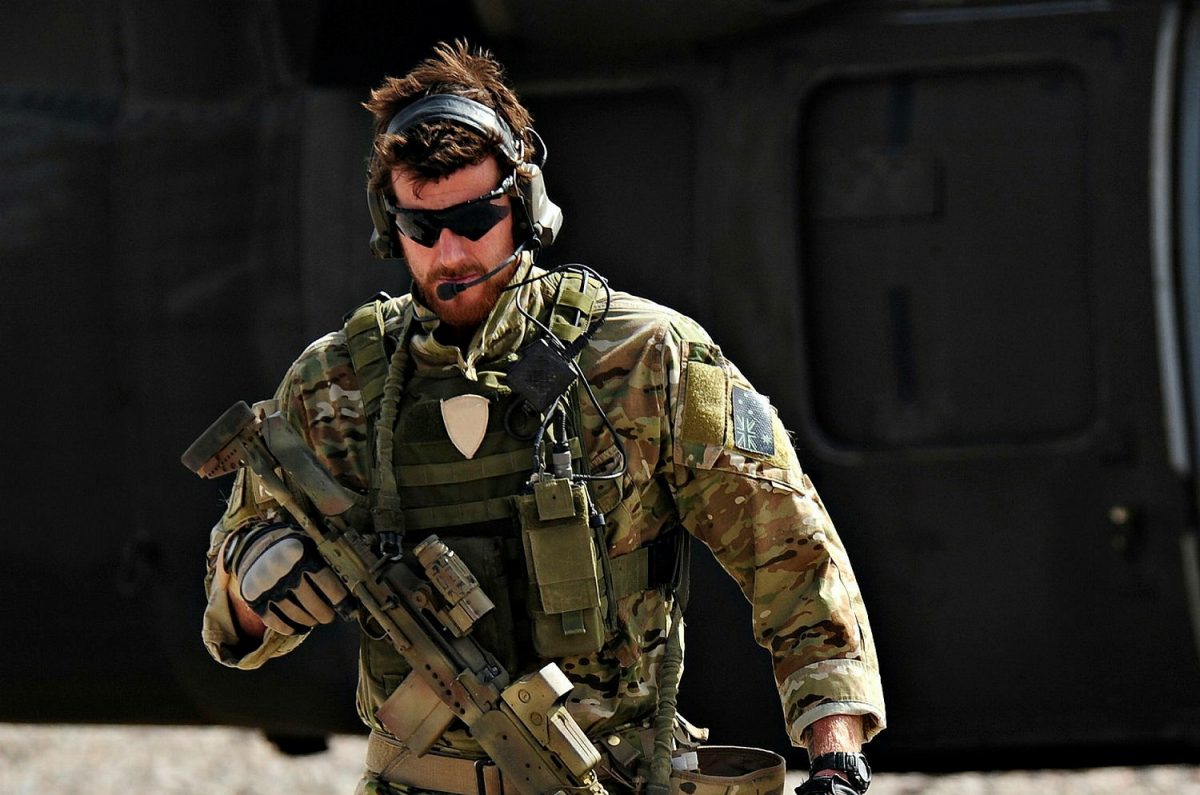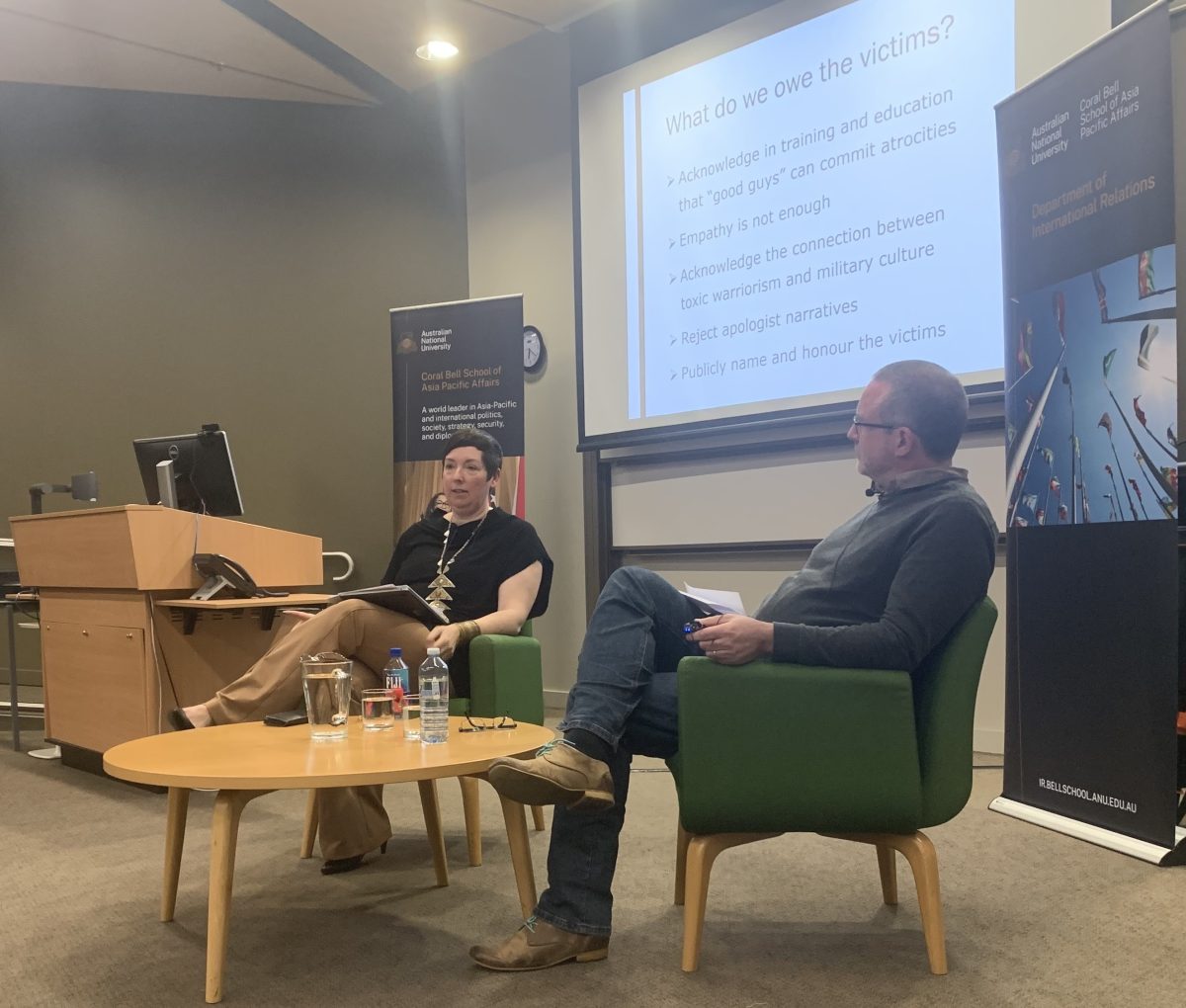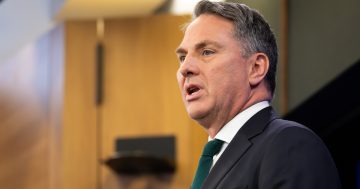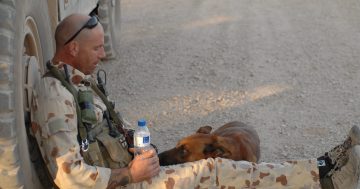
The inquiry into Australia’s Special Forces, led by Major General Paul Brereton, was sparked by allegations about the actions of Ben Roberts-Smith during his time in Afghanistan. Photo: ADF.
Professor Jessica Wolfendale is on the hunt for an answer to how Australia can truly atone for all the injustices revealed in the Brereton Report.
Major General Paul Brereton’s report found “credible information” that Australian troops had killed 39 Afghan prisoners and civilians between 2005 and 2016. It also found a pervasive warrior culture inside the Special Forces that promoted violent initiation rites and manipulation of operation reports to suggest their actions were appropriate with the Rules of Engagement (ROE).
One of the initiation rites, referred to as ”blooding”, involved patrol commanders forcing their junior soldiers to shoot a prisoner to achieve their first kill. A “cover story” would be created when other weapons or radios would be planted with the deceased in the practice known as a ”throwdown”.
Recently Professor Wolfendale returned to her alma mater, the Australian National University (ANU), and spoke on how the Australian people can do right by the innocent victims of our military.
The philosophy academic of Case Western Reserve University has been researching the ethics of political violence over the past two decades, focusing particularly on torture, terrorism, war and punishment.
In a packed lecture room, Professor Wolfendale broke down the two apologist narratives that were rife throughout the public’s response to the indictment of Australia’s Special Forces.
Australian Defence Force Chief, General Angus Campbell, was one of the main proponents of the ”bad apples” narrative, according to Professor Wolfendale.
“The overwhelming majority of Special Forces soldiers did not choose to take this unlawful path,” General Campbell said. “No matter the stress and the strain of battle, they remained true to our values and our laws.”
While Professor Wolfendale accepts that most soldiers do not engage in such crimes, she said this narrative was problematic because it diverted attention away from institutional factors and assumed those who did partake were already bad people.
Reporting and oversight mechanisms inside the ADF were found to have failed in detecting potential war crimes because commanders were “too trusting and too protective of their subordinates”. These commanding officers were also discovered as “too willing to discount complaints from local nationals”.
Professor Wolfendale said the ”bad apples” narrative showed “disdain for victims” by distracting from the role of commanding officers “who knew and chose to ignore” this behaviour and helped to cover it up.
“The perpetrators acted individually but share a collective identity,” she said. “If there can be a collective honour shared by the group, there can be a collective shame.”
Professor Wolfendale said the fact her research never uncovered evidence of a culture or society that hasn’t committed war crimes doesn’t mean nothing can be done about organisational cover-ups – pointing to the example of reforms made following a scandal involving a now-defunct Canadian airborne regiment that tortured and killed a Somali teenager in 1993.
Asked whether an explanation for this behaviour could be linked to increased rates of sociopathy in the military, she said that while selection bias could support this idea (e.g. calmness under pressure), “be careful reading too much into that”.
Studies of torturers, such as those working under Greece’s dictatorship, drew no correlation between sociopathy and war crimes, instead finding they were actually normal people.
The ADF had already begun training Special Forces recruits in moral ethics before the Brereton Report, which Professor Wolfendale said was “great”. However, they should also cover how good guys can and have committed atrocities, claiming:
“These are people who started out probably horrified at such acts.”

Professor Jessica Wolfendale speaks with Professor Luke Glanville in front of a lecture theatre full of current and former ADF service members, students and academics. Photo: James Day.
The ”war is hell” narrative was best displayed in Australian entrepreneur John Singleton’s one-page advertisement that ran across several major broadsheets, titled: ”An apology to Ben Roberts-Smith. From a Coward.”
“We, the great majority, envy your courage, strength, commitment and the torture you must now endure … in that awful moment the soldier has to react. Someone has to pull the trigger. Kill or be killed.”
Professor Wolfendale said the ad, in essence, flipped the ”bad apples” narrative on its head by viewing perpetrators as the victims. However, as she pointed out in the Brereton Report:
- None of the alleged killings occurred in the ”heat of battle”
- None were alleged to have occurred in circumstances in which the perpetrator’s intent was unclear, confused or mistaken
- All understood the Law of Armed Conflict and the Rules of Engagement.
The academic said victims who put their trust in our soldiers deserved more than just empathy.
“Empathy goes quickly with bias, exhaustion and pressure,” she said. “However, accountability is crucial so we must reject these apologist narratives, acknowledge the connection between toxic warriorism and military culture, and publicly name and honour the victims.”
One idea Professor Wolfendale suggested was reading interviews with victims in the media to understand and grasp the scale of those who were harmed.
Another thrown out from the audience was to have a monument at the Australian War Memorial dedicated to the victims of Australian war crimes.
In response, Professor Wolfendale said it would be a good way to move forward, but “the sceptical side of me believes it will never happen or just be a little plaque in the men’s toilet”.




